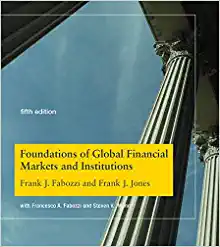Question
It has been observed that investment bankers in New York who ride bicycles for recreation or exercise face a greater risk of having their bike

It has been observed that investment bankers in New York who ride bicycles for recreation or exercise face a greater risk of having their bike stolen than professional bicycle messengers. Specifically, there is an 80% chance that a banker will lose a $1,000 bicycle during a given year but only a 20% chance that a messenger will lose a bicycle. An equal number of bankers and messengers own bicycles in New York. a. If an insurance company cannot tell a banker from a messenger, it must therefore charge the same premium to everyone. What will the actuarially fair insurance premium be if both investment bankers and messengers buy insurance policies? b. Assume that bankers and messengers both have the logarithmic utility functions u(C) = log C, and they both earn $10,000 a year. Will the bankers and messengers purchase bicycle insurance at the premium found in part a.? Explain. c. Given the answer to Part b, does the insurance company make any profits or incur any losses? If the insurance company does not break even, what should the premium be for a fair policy? Would the new premium cause bankers and messengers to change their decision about purchasing insurance? d. Suppose now that the insurance company can observe the "type" of the customer. Would the answers to Parts a. and b. change? Explain.

Step by Step Solution
There are 3 Steps involved in it
Step: 1

Get Instant Access to Expert-Tailored Solutions
See step-by-step solutions with expert insights and AI powered tools for academic success
Step: 2

Step: 3

Ace Your Homework with AI
Get the answers you need in no time with our AI-driven, step-by-step assistance
Get Started


